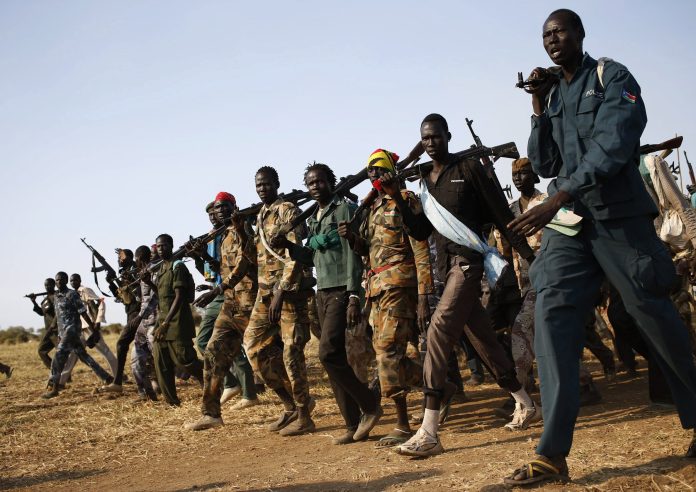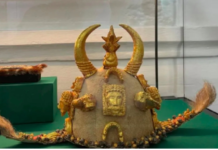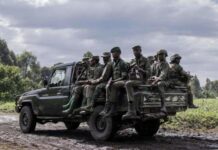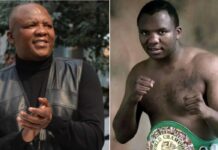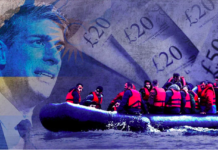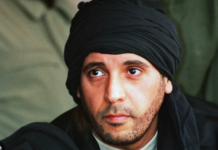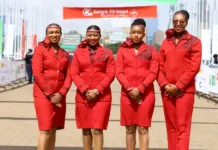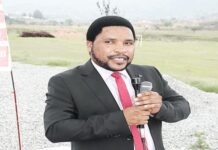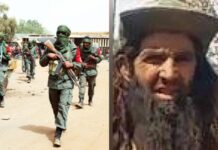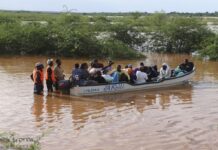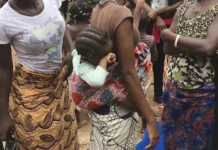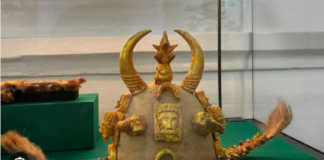Sudan’s military and a powerful paramilitary force battled fiercely in the capital and other areas, dealing a new blow to hopes for a transition to democracy and raising fears of a wider conflict.
Heavy fighting involving armoured vehicles, truck-mounted machine-guns and war planes raged Sunday in Sudan’s capital, Khartoum, the adjoining city of Omdurman and in flashpoints across the country. The rival forces are believed to have tens of thousands of fighters each in the capital alone.
At least five civilians were killed and 78 wounded on Sunday, bringing the two-day toll to 61 dead and more than 670 wounded, said the Sudan Doctors’ Syndicate. The group said it believes there were dozens of additional deaths among the rival forces.
The clashes are part of a power struggle between Gen. Abdel Fattah al-Burhan, the commander of the armed forces, and Gen. Mohamed Hamdan Dagalo, the head of the Rapid Support Forces (RSF) group. The two generals are former allies who jointly orchestrated an October 2021 military coup that derailed Sudan’s short-lived transition to democracy.
In recent months, internationally backed negotiations revived hopes for an orderly transition to democracy. However, growing tensions between al-Burhan and Dagalo eventually delayed a deal with political parties.
Volker Perthes, the United Nations envoy for Sudan, announced that both al-Burhan and Dagalo agreed to a three-hour humanitarian pause in fighting on Sunday. An hour after the pause was meant to have started in the late afternoon, regular exchanges of guns and heavy weapons firing could still be heard in parts of central Khartoum, even intensifying in some areas.
The clashes come as most Sudanese are preparing to celebrate the major holiday that marks the end of the holy month of Ramadan when Muslims traditionally fast from sunrise to sunset.
Residents of Khartoum said fighting raged around the Sudanese military’s headquarters shortly before sunset. “Heavy explosions and gunfire around the clock,” said Amany Sayed, 38. “The battles here never stopped.”
In Khartoum and Omdurman, fighting was reported around the military headquarters, Khartoum International Airport, and state television headquarters. A senior military official said RSF fighters clashed with troops at military headquarters early Sunday and that a fire broke out at a facility for ground troops.
The military and the RSF both claimed to be in control of strategic locations in Khartoum and elsewhere in the county. Their claims couldn’t be independently verified.
Diplomatic pressure mounting
Top diplomats, including the U.S. secretary of state, the UN secretary general, the European Union’s foreign policy chief, the head of the Arab League and the head of the African Union Commission urged the sides to stop fighting.
Members of the UN Security Council, at odds over other crises around the world, called for an immediate end to the hostilities and a return to dialogue. The African Union’s top council convened Sunday at its headquarters in Ethiopia’s capital, Addis Ababa, to discuss the conflict in Sudan.
The group’s Peace and Security Council called for “an immediate ceasefire by the two parties without conditions.” It also asked Moussa Faki Mahamat, who chairs the African Union Commission, to “immediately travel to Sudan to engage the parties towards a ceasefire.” Arab states with stakes in Sudan — Qatar, Egypt, Saudi Arabia, and the United Arab Emirates — made similar appeals.
Prince Faisal bin Farhan, Saudi Arabia’s foreign affairs minister, spoke by phone with Sudan’s rival generals and urged them to stop “all kinds of military escalation,” Saudi state TV reported.
U.S. Secretary of State Antony Blinken said he consulted with the foreign ministers of Saudi Arabia and the United Arab Emirates. “We agreed it was essential for the parties to immediately end hostilities without pre-condition,” he said in a statement early Sunday.
On Sunday, the UN World Food Program said it suspended operations in Sudan after three agency employees were killed in clashes the previous day and an aircraft used by the program was damaged.
“We cannot do our life-saving work if the safety and security of our teams and partners is not guaranteed,” said Cindy McCain, the agency’s executive director.
About 16 million people, or one-third of Sudan’s population, require humanitarian assistance, according to the UN.
At the Vatican, Pope Francis said he was following “with worry” the events unfolding in Sudan. “I am close to the Sudanese people … and I invite prayers so that arms are laid down and dialogue prevails, to resume together the path of peace and harmony,” the pontiff said in remarks on Sunday to the public in St. Peter’s Square.
Clashes throughout Sudan
The rival forces were fighting in several locations across Sudan, including the western Darfur region, where tens of thousands of people live in camps for displaced people after years of genocidal civil war.
Dozens of people were also killed and wounded since Saturday at a camp for displaced people in North Darfur, said Adam Regal, a spokesperson for a Darfur charity.
In Nyala, the capital of South Darfur province, the two sides fought for control of the city’s airport, said a military official who spoke on condition of anonymity because he was not authorized to brief the media.
The official said fighting also spread to the eastern region, including the provinces of Kassala and Al-Qadarif on the borders with Ethiopia and Eritrea. He said battles centred around the RSF and army bases.
Sudan, a country at the crossroads of the Middle East and sub-Saharan Africa, is known for its history of military coups and civil conflicts since it gained independence in 1950s.
The country has borders with six African nations and a strategic coastline on the Red Sea. A decade-old civil conflict resulted in the secession of South Sudan in 2011.

